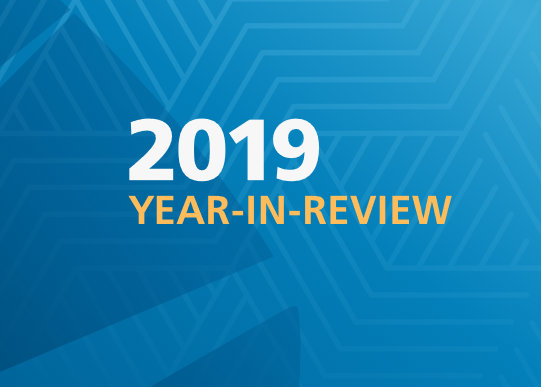Fierce legislative battles, wildfires, landmark charter school legislation and the inaugural year of a new Governor highlighted an exceptionally busy 2019 session in the Capitol. Gov. Gavin Newsom signed 870 bills into law, almost 100 of which will directly impact public schools. Over the course of the year, CSBA worked hard and strove to defend local governing board authority, advance equity and hold the state accountable for meeting its financial and constitutional obligations to schools.
VIEW CSBA’s 2019 YEAR-IN-REVIEW »
Our efforts took many forms over the past year, including aggressively pursuing legal remedies in the courts through CSBA’s Education Legal Alliance (ELA). The year’s biggest legal victory came as a result of a settlement agreement between CSBA and the State of California over the state’s manipulation of the Proposition 98 guarantee in 2018. As a result of the settlement, the state agreed to immediately repay schools $686 million. As governing boards struggle to do more with insufficient levels of funding, victories like this one are critically important.
CSBA has consistently made the case that California schools need more resources to support students, and, last January, Gov. Newsom responded. Speaking before a televised audience, the Governor explained his decision to allocate $3 billion outside of Prop 98 funds toward school pension costs. He noted, “I will never forget our school boards association meeting, where they almost, quite literally, didn’t want to talk about anything else. This is a big deal. This is not paying down the state’s obligations; this is helping relieve the districts’ burdens.”
The Governor’s remarks are a testament to the strength of our organization and the persistence of our members to secure more funding to support school districts and county offices of education. This persistence also helped to secure some of the most significant charter school reforms, including greater transparency and accountability for charter school governing boards and enhanced discretion and authority for authorizing local educational agencies. With the enactment of Senate Bill 126 and Assembly Bills 1505 and 1507, charter schools are now required to follow the same rules regarding open meetings, public records and conflicts of interest that other public schools must observe. In addition, the new laws grant charter authorizers the ability to consider the impact of charter schools on district finances and programs, retain the role of county office of education boards in the charter petition appeal process and eliminate the State Board of Education’s authority to approve statewide charter petitions. All told, seven of the nine recommendations contained in CSBA’s November 2018 charter schools report, Uncharted Waters: Recommendations for Prioritizing Student Achievement and Effective Governance in California Charter Schools, were enacted by the state.
Our advocacy and legal efforts are intended to advance and complement the most important work board members do — governing to advance student achievement and civic opportunity. Governing can be challenging work, and we continue to identify and develop new ways to support board members in this endeavor. This year, we debut our new Online Learning Center in an effort to provide greater access to CSBA’s professional development content. Governing is not easy, and we want to provide all our members with expanded learning opportunities that support the work of board members at the local level.Thank you for your support of CSBA during the past year and for the work you do on behalf of students. Your role as stewards of public education is critical to the future success of our schools, and we will be unwavering in our commitment to supporting you in this vitally important role
-Vernon M. Billy
CSBA CEO & Executive Director





